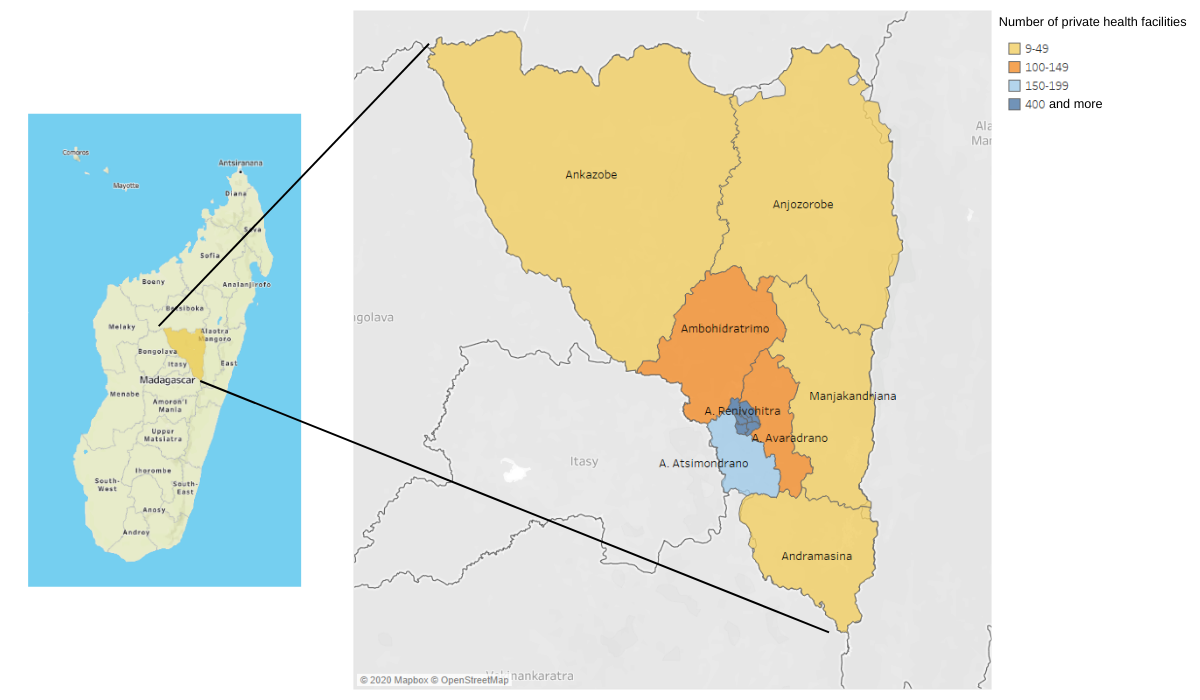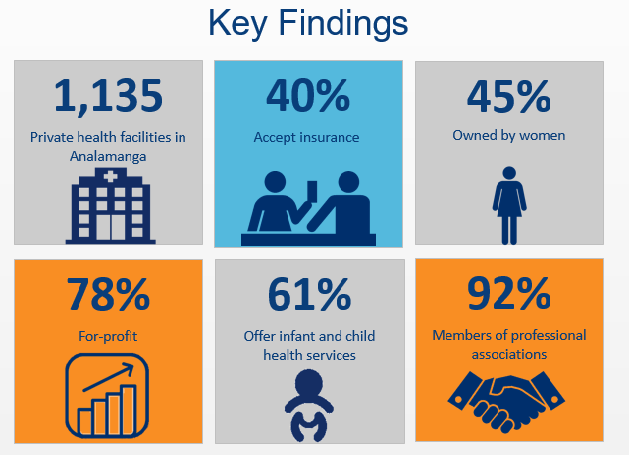Mapping the private health sector in Madagascar’s capital region
The absence of reliable information about the private health sector in Madagascar is one of the main obstacles the government of Madagascar faces in engaging with the private sector. As a result, SHOPS Plus worked with the Ministry of Health’s Information System Studies and Planning Department and private sector stakeholders on a facility census. The census collected information on the number, location, characteristics, and health services of private health facilities in the country (pharmacies and drug shops were excluded). It started with the Analamanga region, which includes Madagascar’s capital and main urban center, Antananarivo.

The majority of the facilities surveyed are located in Antananarivo, the capital.
Sharing findings with stakeholders
On June 23, 2020, SHOPS Plus shared the findings of the private health facility census conducted in Analamanga region. Over 20 stakeholders joined the dissemination event, including representatives from the Ministry of Health, USAID, USAID implementing partners, and local professional associations. The Ministry of Health is looking to use the findings to better understand the private sector’s contribution to the health system, and is interested in conducting a similar study for the public sector. USAID partners are particularly interested in the private health sector’s role in key health areas such as family planning, malaria, and maternal and child health. Private health sector representatives would like to use the census results to identify investment opportunities in infrastructure and capacity building in order to improve and expand healthcare services.
Key findings
SHOPS Plus identified 1,135 private health facilities in Analamanga. The team surveyed 1,047 of them and found that 61% offer infant and child health services, 53% offer maternal health services, 53% offer family planning services, and 58% offer malaria services. The majority of facilities (78%) are for-profit; 40% accept some form of health insurance. Almost half (45%) are female-owned and the vast majority (92%) are members of professional associations. Private health facilities reported facing some common challenges: shortage of equipment and other medical supplies, lack of financial resources, lack of qualified personnel, and drug shortages. SHOPS Plus will use these findings to inform its implementation strategy in the project’s final year.

Going national
SHOPS Plus is moving to the next phase of the census and plans to map out private health facilities in the remaining 21 regions of Madagascar. The census will also include a new section to assess the ability of private health facilities to contribute to the COVID-19 pandemic response. Stakeholders expressed their eagerness for this second phase of the census, as they will use the results to shape future activities with the private sector.